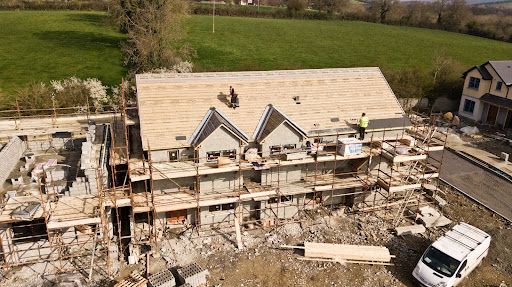
If you have ever dreamed of building your own house, you have possibly envisioned yourself wearing construction boots and a bright yellow hat. But before you run out and buy a hammer, some nails, and a set of blueprints, you might want to double check that you know what you are getting into. Because no matter how much you want to build your own house, it might not be the best idea if you’re totally new to construction games. That is unless you are ready to learn plenty of useful new things. Luckily, with a little research and patience, you can build a house without destroying the building. Here’s what you need to know before you get started.
What is the land zoning for?
Different areas will be charged different zoning laws. It regulates what can and can’t be built in a certain area.
For example, you buy land in a rural area surrounded only by agriculture. In this case, you may not get planning permission for some of the residences if they do not suit the local area. It’s the same for trying to build a commercial property in a residential zone and vice versa. There will even be restrictions on building single-family residences, condominiums, multi-family residences, etc. So before you rush into making plans, know precisely what you are allowed to build on.
What horizontal developments do you need to consider
Do you need to pay for horizontal construction? For this you’ll need a special contractor, such as a drilling contractor, to help make sure you are up and running within guidelines and getting the project finished and attractive to buyers where applicable. You need to include sidewalks in your plans, roads, connecting utilities, etc.
What is your financial limit
Before you go out and buy a hammer, nails and blueprints, you should possibly double check how much money you are willing to spend on your new home. This is particularly important if you plan on building your own. For example, if you know you have a big budget for the house you are building, it is a good idea to find out how much you can afford to spend. This will help you determine what size and style of home you should build. However, even if you have a rough idea of your budget, it is still good to sit down with a financial advisor and find out precisely where your money is going. This will help you avoid costly mistakes in the future. Don’t forget to have an emergency fund and plan to keep your budget in check, so you have money ready if you need it.
Is it a worthy investment or not
Every investment comes with its risks—and building a home is no different. If you do not know what you are getting into. If you decide to build a house, you must make sure that it’s a worthy investment. What does this mean? Let’s say you choose to build in a high-growth area that’s experiencing high growth rates. However, is it a good idea to build in an area experiencing high growth rates? Not necessarily. It depends on a number of things, but one of the most significant things to consider is the price of the land. The higher the land price, the harder it’s to build a profitable house. If you decide to develop in a high-growth area, you will need to be sure that the land you build on is worth the cost. You can do this by looking at local land records and asking a real estate agent to offer you a rough estimate of the price of the land.











